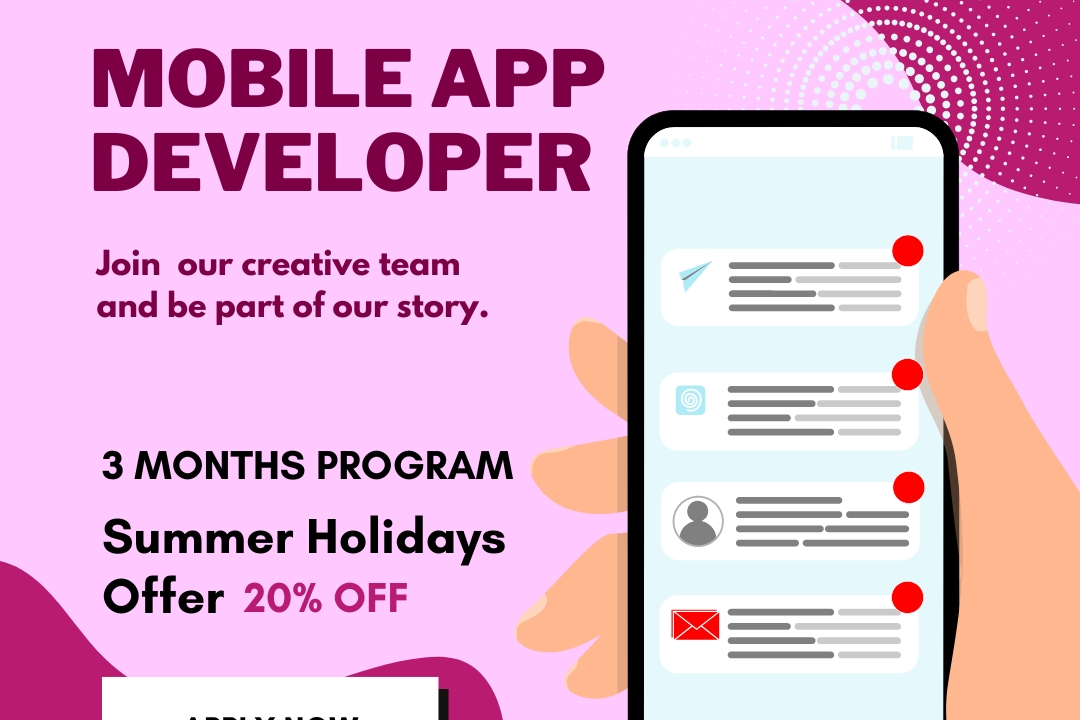Flutter Software Engineering
Flutter Mobile Development Engineer
Flutter Software Engineering
Flutter is an open-source UI software development toolkit created by Google, designed for building natively compiled applications for mobile, web, and desktop from a single codebase. It employs the Dart programming language and provides a rich set of pre-designed widgets, allowing developers to create visually attractive and highly interactive user interfaces with ease. Flutter's architecture embraces a reactive programming model, enabling efficient rendering and smooth animations. The framework also supports hot reload functionality, allowing developers to see real-time updates without losing the current application state, which significantly accelerates the development process. With a growing ecosystem and community support, Flutter is becoming a popular choice for software engineers looking to streamline app development across multiple platforms.
To Download Our Brochure: https://www.justacademy.co/download-brochure-for-free
Message us for more information: +91 9987184296
1 - Introduction to Flutter: Understand what Flutter is—a UI toolkit created by Google for building natively compiled applications for mobile, web, and desktop from a single codebase.
2) Dart Programming Language: Learn Dart, the programming language that powers Flutter. Focus on its syntax, features, and how it integrates with Flutter applications.
3) Flutter Architecture: Explore Flutter’s architecture, including the framework, engine, and the Dart platform, and how it differs from other frameworks.
4) Widgets and UI Components: Dive deep into Flutter's widget system, which allows developers to build highly customizable and responsive user interfaces.
5) State Management: Understand different state management approaches in Flutter, including Provider, Riverpod, BLoC, and Redux, aiding in efficient data handling within applications.
6) Flutter Layouts: Learn how to create complex layouts using Flutter’s flexible layout system, including rows, columns, stacks, and other layout widgets.
7) Theming and Styling: Master the concepts of theming and styling Flutter applications to enhance user experience and maintain consistency across the app.
8) Navigation and Routing: Understand how to implement navigation and routing in Flutter apps, including passing data between screens and managing local state.
9) Networking in Flutter: Learn about making HTTP requests, handling JSON data, and integrating APIs into Flutter apps for dynamic content.
10) Testing and Debugging: Discover best practices for testing Flutter applications, including unit tests, widget tests, and integration tests, as well as debugging techniques.
11) Database Integration: Explore local storage options in Flutter, including SQLite and shared preferences, and understand how to work with cloud databases like Firebase.
12) Building for Web and Desktop: Understand how to extend Flutter applications to web and desktop environments, learning about specific considerations for different platforms.
13) Deployment and CI/CD: Learn about deploying Flutter applications to app stores, as well as setting up continuous integration and deployment pipelines.
14) Community and Resources: Get familiar with the Flutter community, including key resources, documentation, and forums where students can continue learning.
15) Real world Project Development: Engage in hands on projects throughout the training, allowing students to apply concepts learned in a practical, real world context, culminating in a portfolio piece.
These points not only outline the key areas of Flutter software engineering but also emphasize a comprehensive training program tailored for students looking to gain expertise in this popular framework.
Browse our course links : https://www.justacademy.co/all-courses
To Join our FREE DEMO Session: Click Here
Contact Us for more info:
Flutter Testing Frameworks
Java Code Collaboration
Java For Chatbot Development Mumbai
Android Development Resources
Java For Financial Technology











